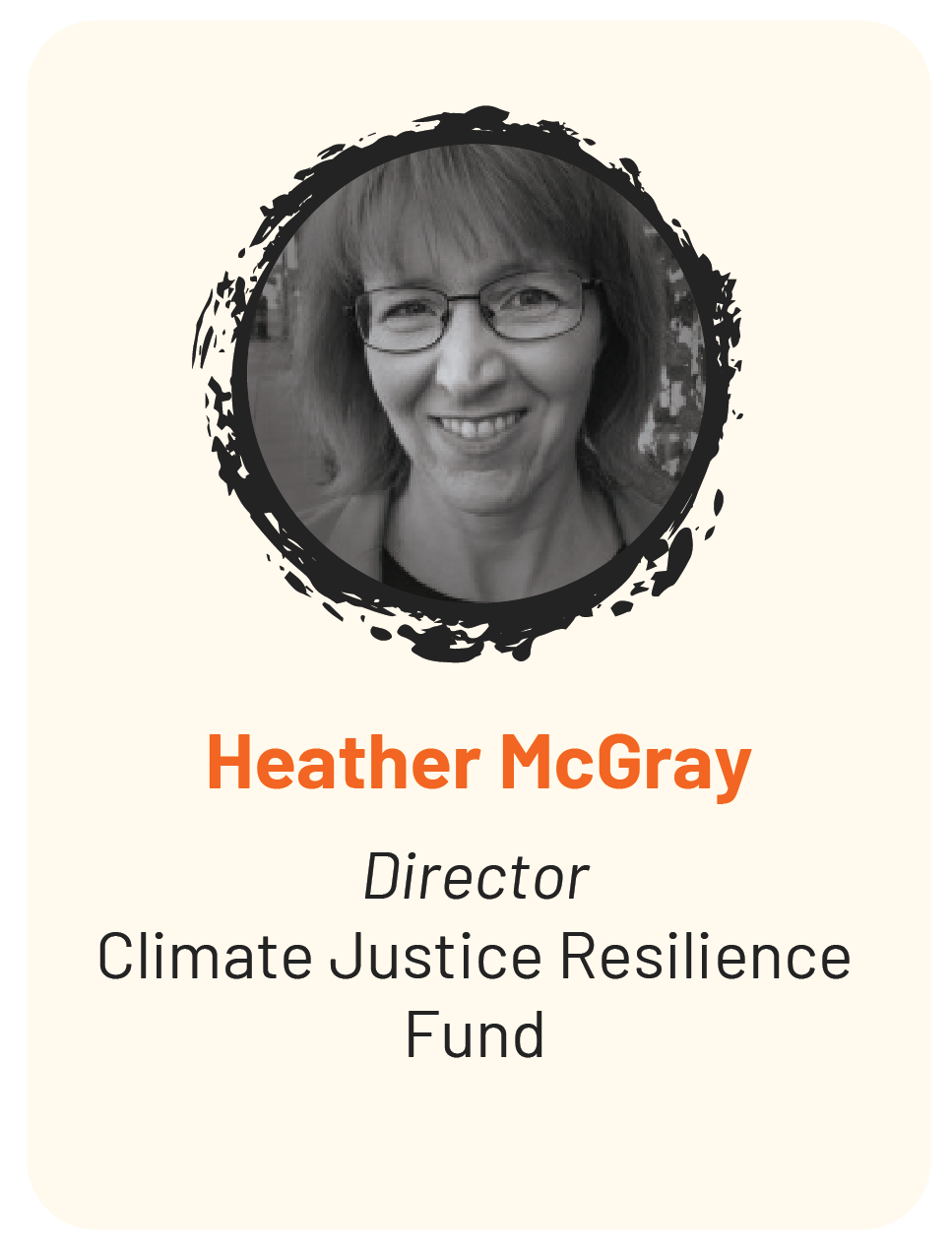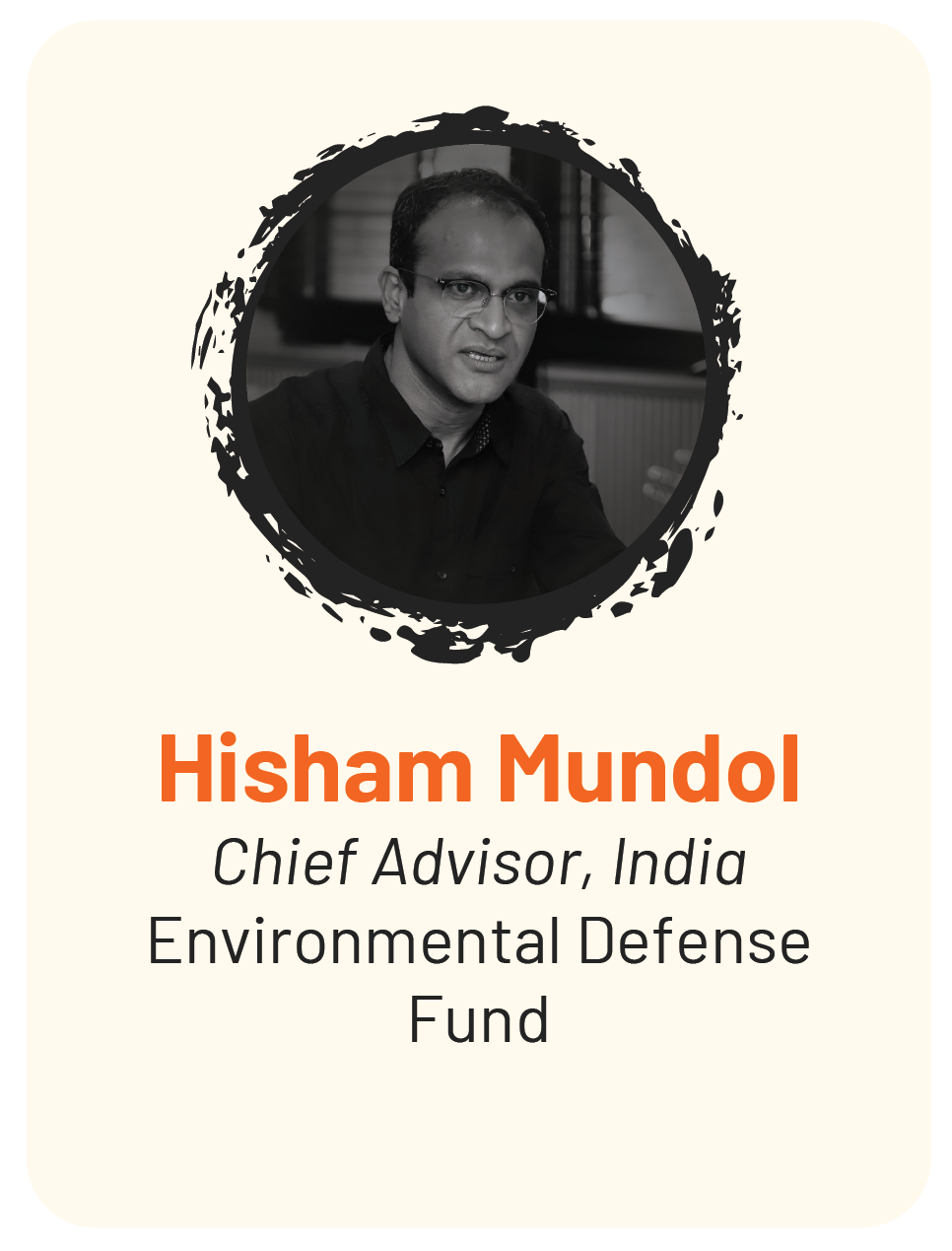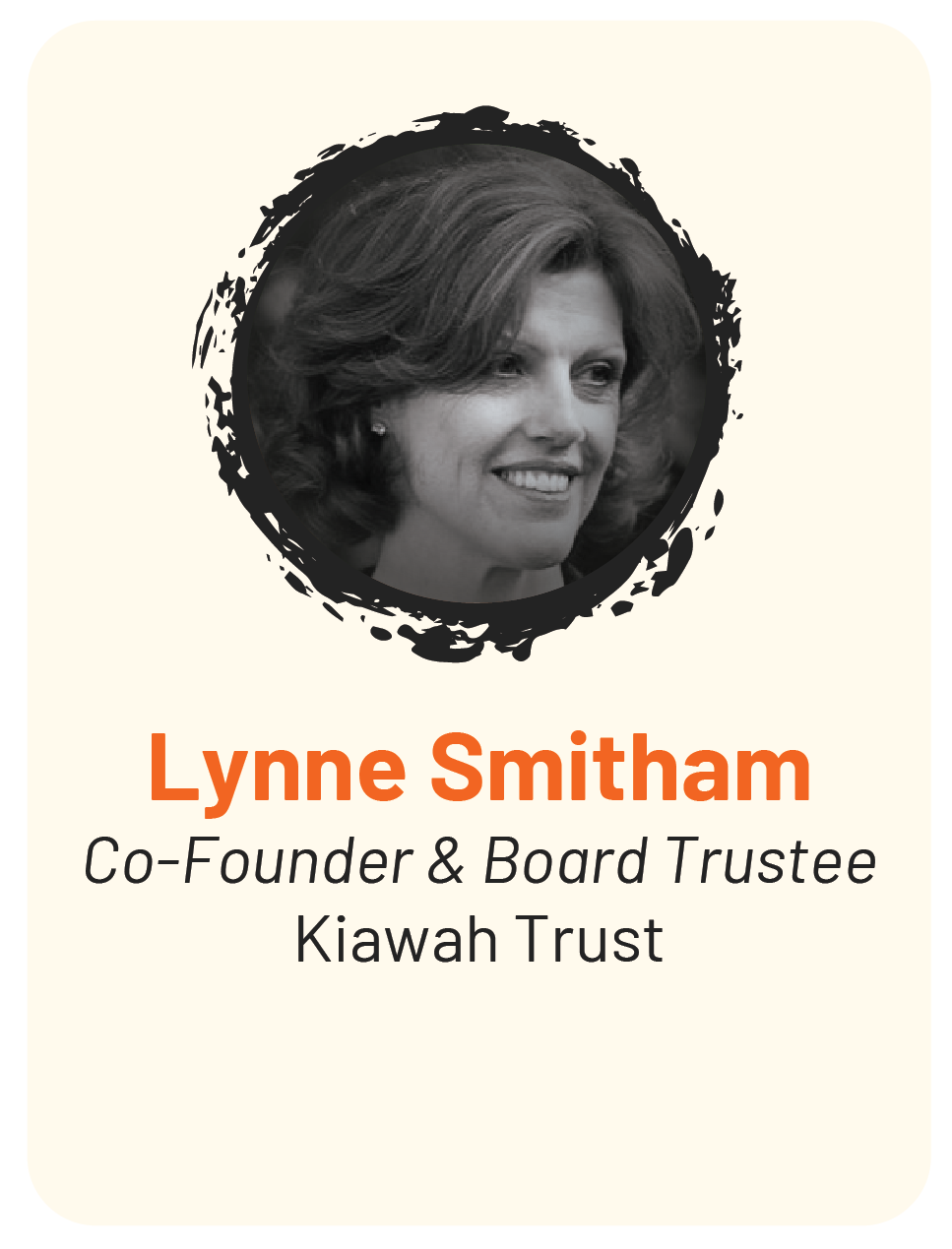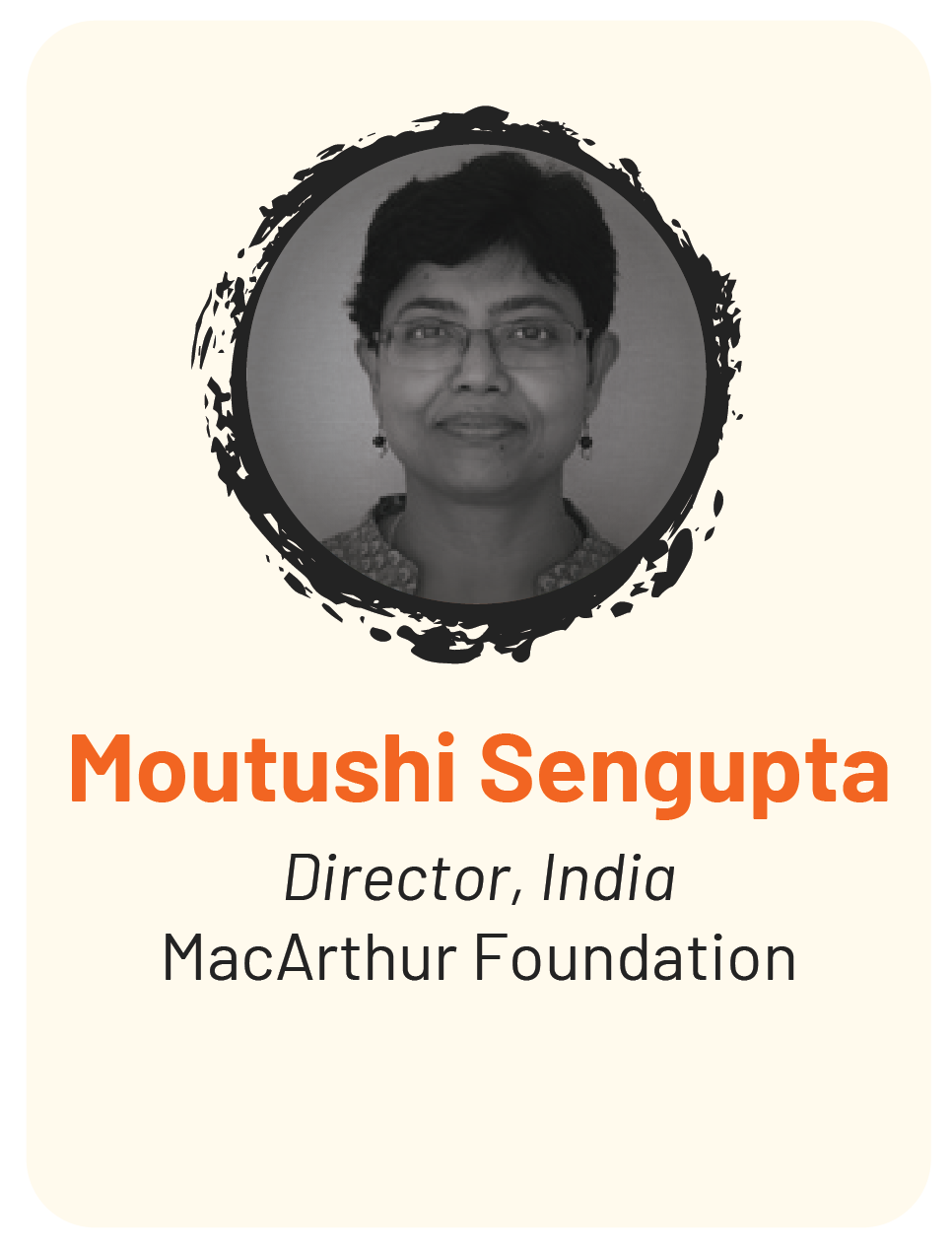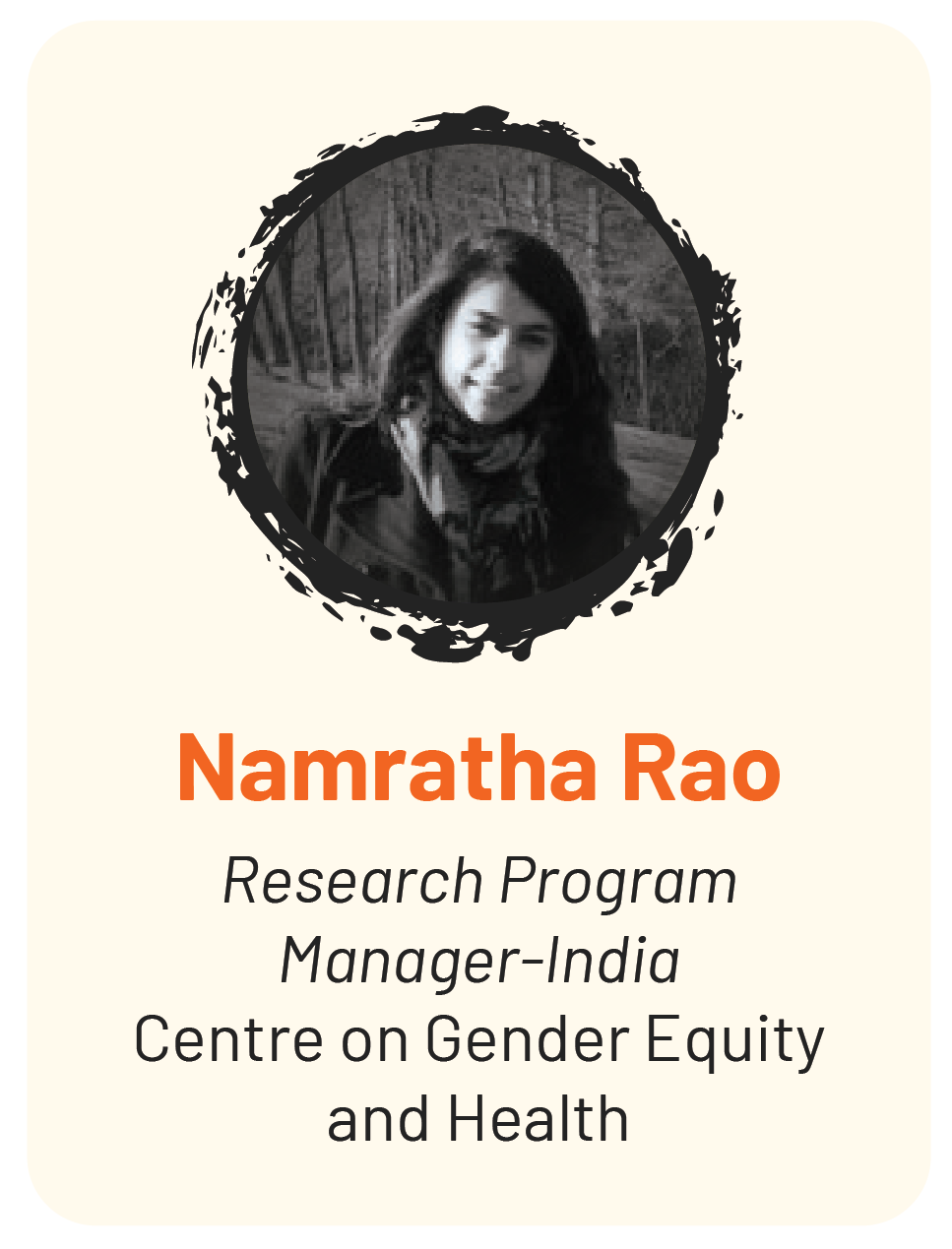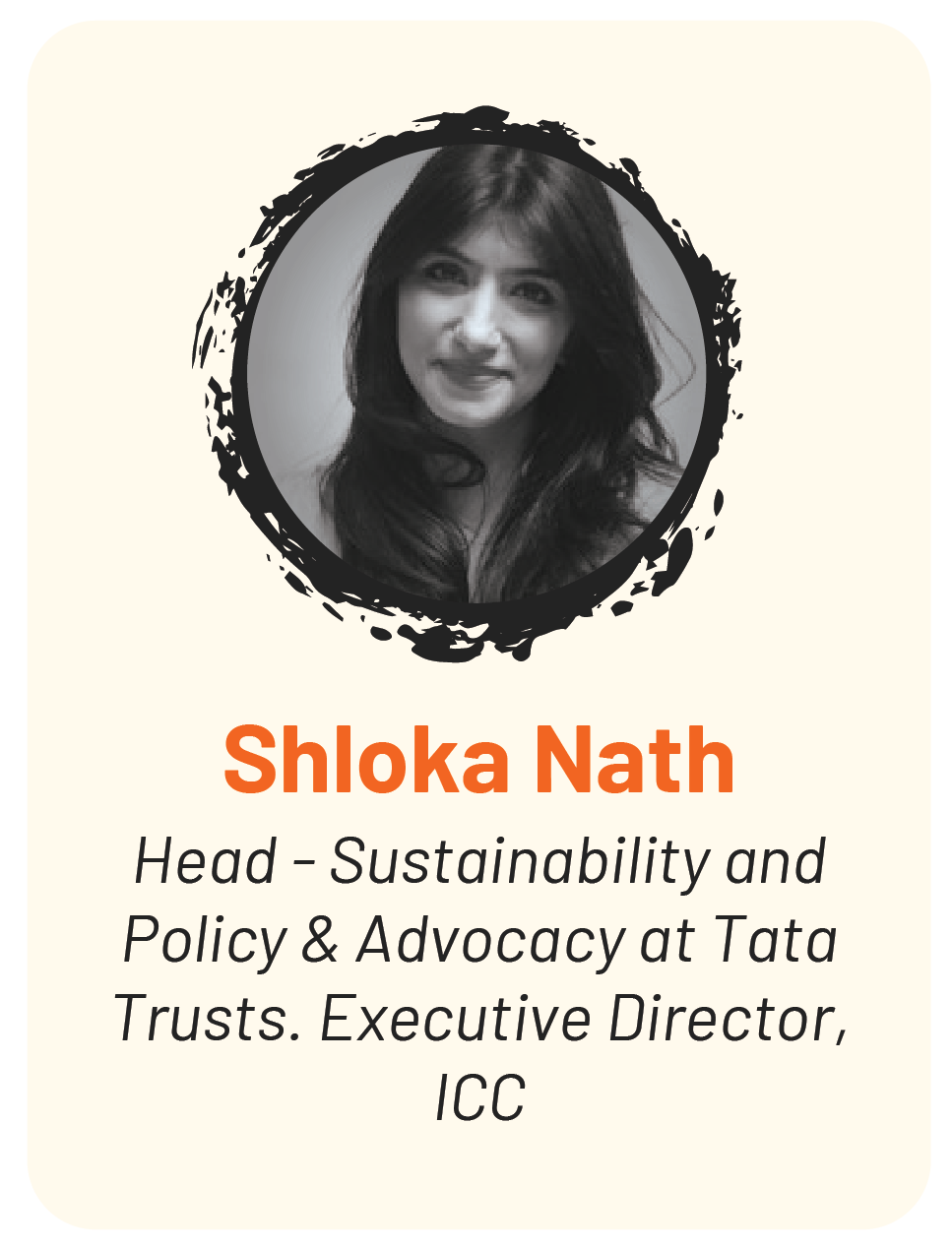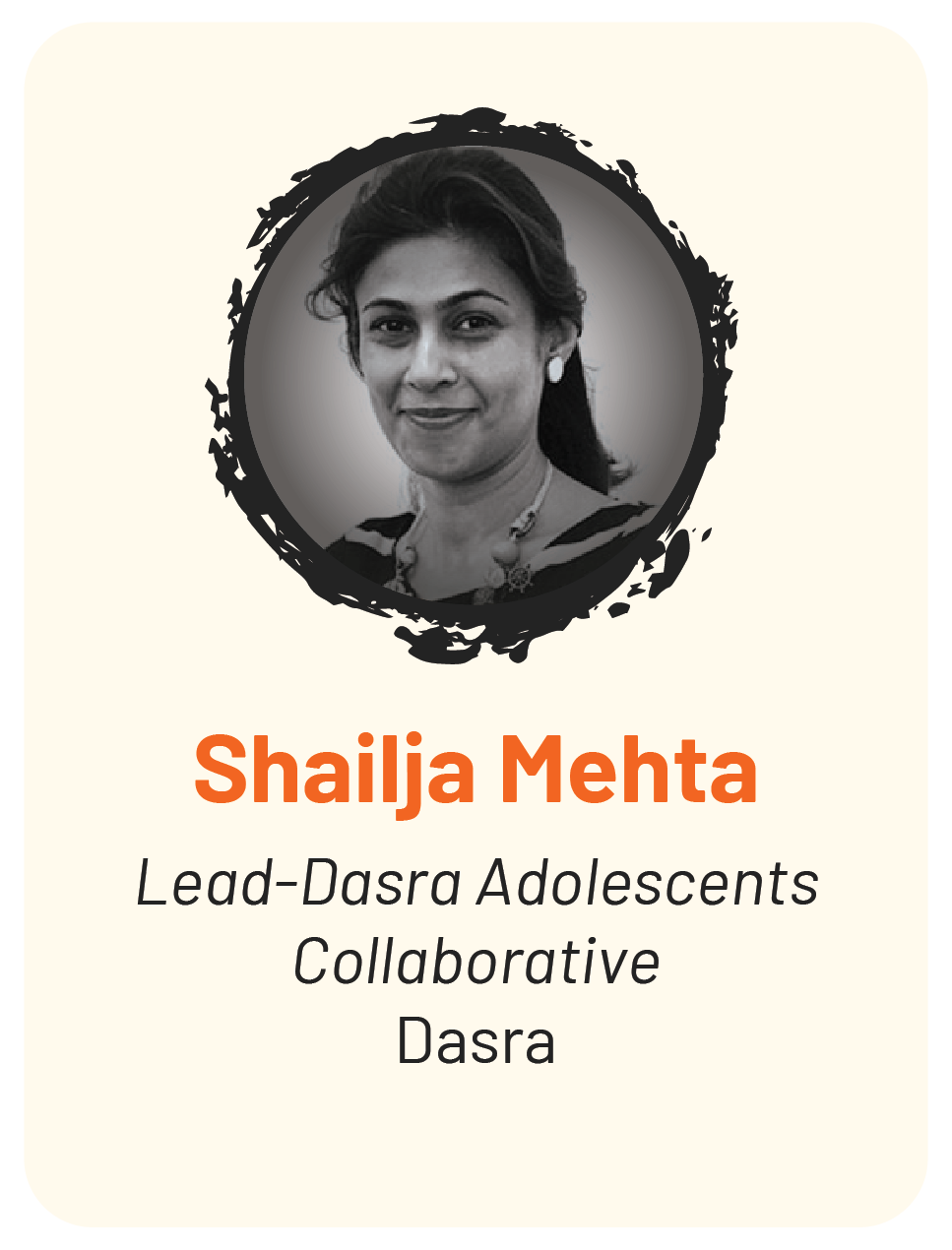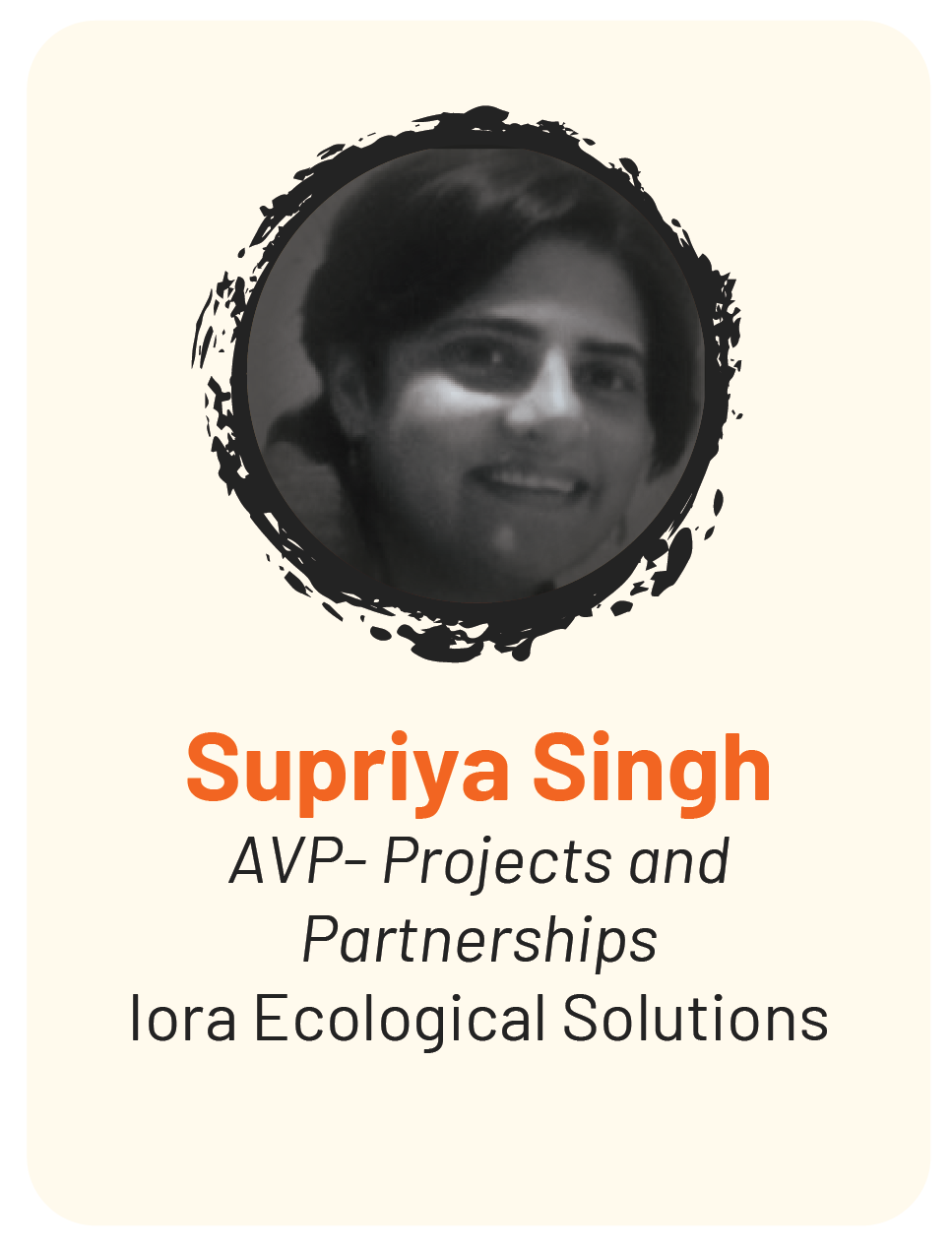Sunrises in the East:
|
|
We need to better understand the intersections between climate change and its impact on adolescents. This includes generating more India-specific evidence and research, which is currently lacking, advocating for inclusive climate change laws that are responsive to the needs of adolescents, and building the capacity of young people who are leading the large in the climate movement. We also need to drive more funding to the issue.
Read Dasra’s white paper, The sun rises for her: Exploring intersections between climate change and adolescents, to learn more about this topic, and tune in to our session highlights to hear panelists from India Climate Collaborative, MacArthur Foundation, The Kiawah Trust, Fridays for Future, and more talk about what needs to be done, and the role that funders and civil society organisations can play. |
Key takeaways
- When it comes to the inter-linkages between climate change and its impact on adolescent girls, there is limited data available in India, though there is some qualitative data, as well as data from neighboring countries such as Bangladesh and Nepal, on the disproportionate impact of climate change on adolescents, especially girls.
- Funders are increasingly recognizing the importance of focusing on climate change and the vulnerabilities faced by adolescent girls, through investments that account for these intersectionalities.
- Young people are leading the charge when it comes to calls for climate justice, but they don’t have a seat at the policy table. We need to shift our mindsets to see young people as partners—this means trusting and believing in the wisdom and innovation of youth.
- We cannot engage with young people on the topic of climate justice with doomsday scenarios that are decades down the road. Instead, we must engage them by articulating how climate change is impacting their lives today.
- Young climate activists know how to organize and make their demands heard. In order to lead from the front, they want support with building their capacity, strengthening their knowledge, and understanding of how to sustain their movements.
session highlights
One in 10 Indians today is an adolescent girl, and yet, this group remains among the most vulnerable across a range of outcomes – from education, to sexual and reproductive health, access to resources, and economic empowerment. This vulnerability is amplified when we consider the impact of climate change on the lives of women and girls. For instance, climate change events inevitably lead to economic shocks; and there is qualitative evidence to show that at these times, women and girls are at greater risk of either being married early or being trafficked. Moreover, prevalent structural hierarchies and societal norms that place girls at a disadvantage contribute to exacerbating the impacts of climate change on them.
Today there is not enough empirical data on the interlinkages between climate change and its impact of adolescent girls. While funders are increasingly looking at this issue, there needs to be a more robust analysis of the existing secondary data, and the creation of new evidence and impact assessments. Moreover, since India already has a rich base of adolescent programming, we need to find ways to layer on climate change aspects to help mitigate the known risks.
There’s a clear role for young people in the fight for climate justice. However, civil society and policy makers are not doing a good enough job at involving them in decision making. It is not enough to invite them to the table, we must build their capacity so that they can strengthen their own efforts.
Today there is not enough empirical data on the interlinkages between climate change and its impact of adolescent girls. While funders are increasingly looking at this issue, there needs to be a more robust analysis of the existing secondary data, and the creation of new evidence and impact assessments. Moreover, since India already has a rich base of adolescent programming, we need to find ways to layer on climate change aspects to help mitigate the known risks.
There’s a clear role for young people in the fight for climate justice. However, civil society and policy makers are not doing a good enough job at involving them in decision making. It is not enough to invite them to the table, we must build their capacity so that they can strengthen their own efforts.
quotes
|
|
We definitely need more female voices at the table of climate change. Currently there isn’t sufficient pipeline in terms of women leaders either in climate science or in science generally, or even in just in policy making. – Lynne Smitham |
|
|
In 2015 we were one of the very few organizations who invested in climate change mitigation in India. But in 2020 there are several more. And that is a very clear indication of the level of funder interest in this whole area.” - Moutushi Sengupta |
|
|
India is in a unique position not only because we’re incredibly vulnerable to the impacts of climate change, but we also have tremendous responsibility to our next generation because we are the third largest emitter in the world, and as we develop our share of emissions is only expected to go up. – Shloka Nath |
|
|
Good development is actually a bedrock to climate resilience. – Shloka Nath |
|
|
Generation after generation, young people are almost always more informed than previous generations, more active than previous generations, more ambitious, and less patient. And that’s great. The more of that we see, the better the future of the world will be. – Hisham Mundol |
|
|
With grants that are typically two to three years, you aren’t able to measure those impacts necessarily. So the more important thing is to get really clear about the pathways we are trying to establish, and then gathering stories or examples of that progress along that pathway. – Heather McGray |
|
|
The main thing in things like this is that you will never arrive at that perfect solution immediately. The whole idea is the trajectory of progress. If you get people moving and talk about it, you will eventually get to a place where there is progress. - Hisham Mundol |
|
|
It’s capacity building and knowledge sharing that can accelerate us to a better future. – Laksh Sharma |
|
|
We do recognize that youth have created a public awareness and urgency on the climate issue in the last three years that scientists over the last 20 years have not been able to. They have made us sit up and listen. – Shailja Mehta |
Share this session's highlights with your network!

